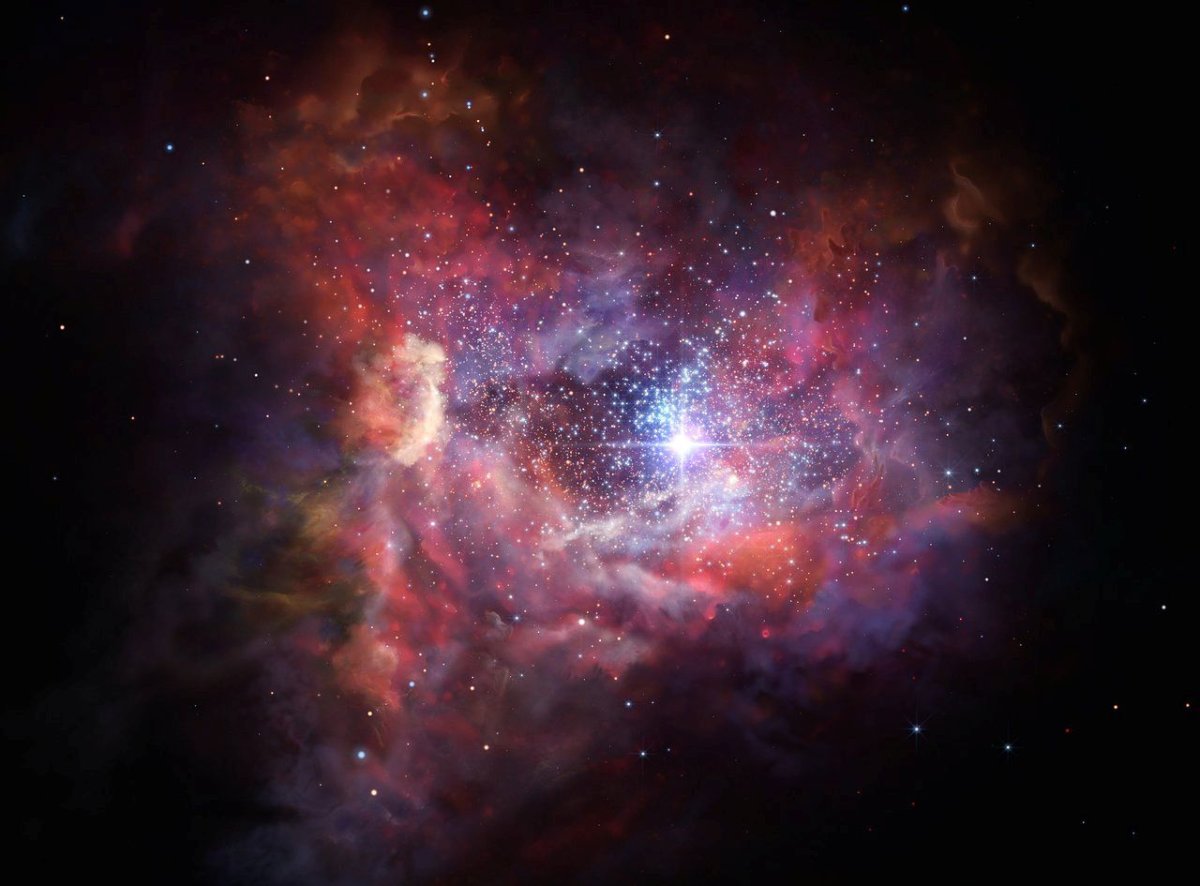What will it take for the universe to die? Two astrophysicists have proposed it will likely go out the same way it came in: with a bang.
Though any potential death is still 30 to 40 billion years away, the scientists said, they've already modeled possible obliteration scenarios in a study published Wednesday in the journal Physical Review D.
Sergey Odintsov and Vasilis Oikonomou modeled one kind of singularity—a location in space where the density of matter becomes finite and the concepts of space and time cease to exist—that would effectively end the universe with another Big Bang. (They warned that there are many scenarios under which such a singularity would not develop.)
What lies beyond that singularity is unknowable. But we would not be around to wonder, in any case. If the end of the universe does occur as the study predicts, life would end long beforehand. Thirty to 60 million years prior, the gravitational pull of the singularity would turn matter into plasma as it draws closer to a single point of infinite matter density until the plasma itself disappears with it, the researchers said.

It's also possible the universe will continue to grow infinitely, the study's authors said, if the singularity does not occur, but that depends on alternative theories of gravity, which are seldom supported in models.
Scientists have teased universal cataclysms since the discovery of the Big Bang. Odintsov previously explored the "Big Rip" theory, in which the universe expands at an accelerated rate and eventually creates a strong "rip" that tears the fabric of space and destroys everything with it.
In March, a team of Harvard researchers posited that the universe will erupt and explode following the destabilization of the Higgs boson, or "God particle," associated with a titular three-dimensional field in space that gives celestial objects their mass. They estimated the death of the universe is still trillions of trillions of years away, but in their theory, it's inevitable: Supermassive black holes are likely lurking nearby to disrupt the Higgs field and space-time.
There's also the possibility the ever-expanding universe will suddenly reverse course, shrinking as matter decreases over time and gravity pulls celestial bodies inward in a phenomenon known as the "Big Crunch." As planets and galaxies collide and collapse, the universe will implode back into a singularity.
Then there's the "Big Freeze": Under the law of thermodynamics, the universe's heat would be evenly distributed, leaving no room for usable energy for stars to form. The death of old stars and the absence of new ones will leave the universe cold and lifeless.
"It turns out we're right on the edge between a stable universe and an unstable universe," theoretical physicist Joseph Lykken told the New York Post. "We're sort of right on the edge where the universe can last for a long time, but eventually, it should go 'boom.'"
Uncommon Knowledge
Newsweek is committed to challenging conventional wisdom and finding connections in the search for common ground.
Newsweek is committed to challenging conventional wisdom and finding connections in the search for common ground.
About the writer
Scottie is a Newsweek science fellow and student at the University of Florida. Her work has appeared in Women's Health, the Gainesville ... Read more
To read how Newsweek uses AI as a newsroom tool, Click here.








